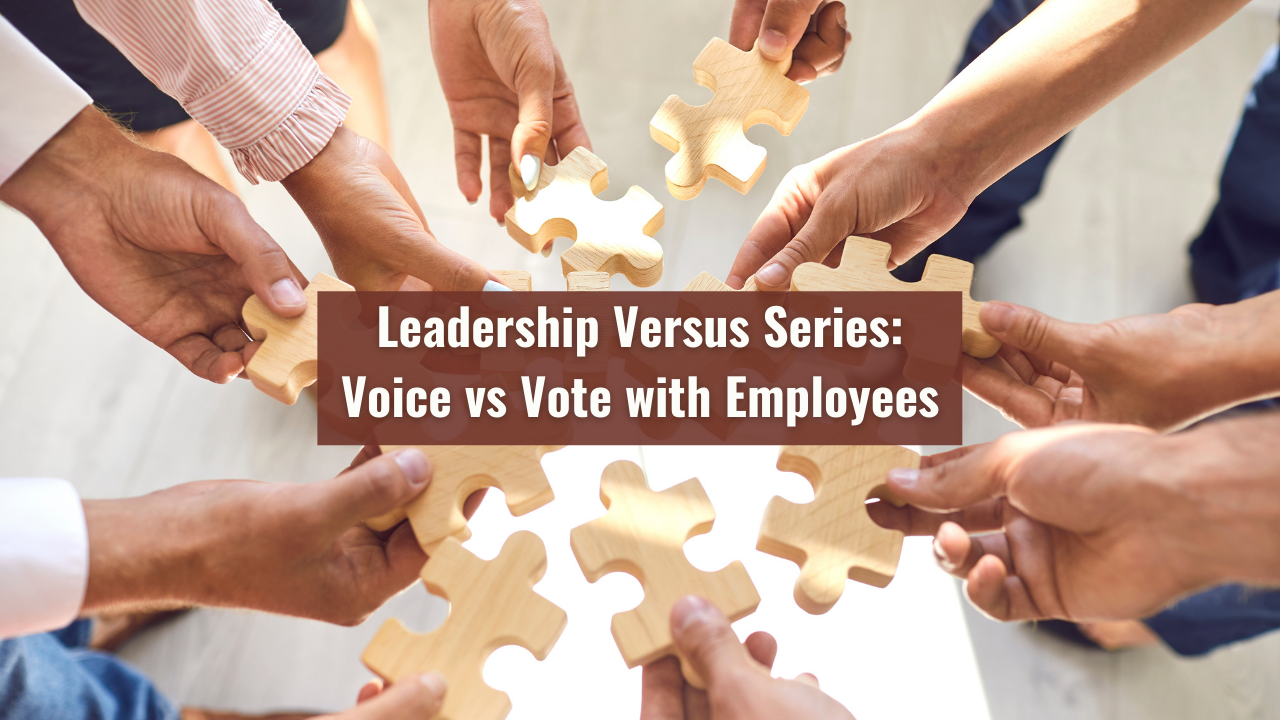
Leadership Versus Series: Voice vs Vote with Employees

In my organization, all employees’ voices will be heard. If you have something to say and can present it in a manner that does not attack your teammates, I am all ears. If you think it is necessary to attack your teammates, experience tells me that you are probably wrong, but I will still listen. I want to hear from everyone, from the newest member of the team to the most seasoned.
Employees Can Have a Voice
It has been my experience that the best ideas for product or service improvement come from the customer-facing folks, the front line, tactical level people who deliver the product or service. In the military, junior enlisted are the workforce and their voice is critical. Therefore, I want to hear from them often. However, not every idea is good or even executable, so I ask three questions when presented with ideas for change.
- Will it enhance the employees’ experience?
- Will it enhance the customer experience?
- Will it enhance the bottom line?
If the answer is yes to all three questions, we are most likely going to do it. If the answer is yes to one of the three questions, we will look more closely at the situation to see if the concept can be further developed.
It is any leader’s responsibility to hear from everyone under their charge. It is also the leader’s responsibility to make decisions that are in the best interest of the organization first and foremost, and this does not include putting major decisions to a vote, such as hiring, firing, allocation of dollars to budgets such as investment in professional development, marketing initiatives, facility improvements, renovation, travel, employee retention incentives, healthcare, and retirement benefits…the list goes on. Accountability for those types of decisions rests with the leader. You, as the leader of your organization, are expected to make decisions that are in the best interest of the organization. After receiving input from the subject matter experts on your team, you will make the best decision possible. Rarely do we have one hundred percent of the information we need to make a decision, but every situation reaches a point where it is decision time. Indecisive leaders hold up the rest of the team.
Employees Can Vote
Is there a situation where a vote is in order? Sure. Items that make the workplace more accommodating such as what type of coffee machine, where to have the Christmas and holiday party, and other items that do not directly impact cardinal direction or profitability.
Conclusion
Finally, valuing all voices promotes an inclusive environment and is good for business. You will derive a more diverse demographic, be more innovative, responsive, and resilient to changing conditions.
Come to our Free Leadership Skills Webinar at EYLWebinar.com.